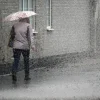The scorching months continue to wreak havoc on the US as a treacherous heatwave threatens to shatter temperature records this week. The south-west, already scorching hot, is bracing for a record-breaking heatwave that may rival some of the worst in history.
The National Weather Service (NWS) issued a warning over the weekend, cautioning of further excessive heat in a month that has already seen record global temperatures. The warning covers the entire Phoenix metro area and beyond in Arizona, effective until at least Sunday.
This heatwave is no ordinary affair, with temperatures set to soar to unprecedented highs. The NWS warned that Tuesday through the rest of the week will see some of the hottest temperatures in the region’s history, with highs ranging from 113 to 118 degrees Fahrenheit (45 to 48 degrees Celsius) across the lower deserts on Wednesday and Thursday. There is a 5-10% chance of temperatures reaching a life-threatening 120 degrees Fahrenheit (49 degrees Celsius).
On par with Phoenix’s second hottest day in history, which saw temperatures reach 121 degrees Fahrenheit (49 degrees Celsius) on July 28, 1995, the NWS noted that the atmospheric setup during this heatwave bears similarities to those conditions that led to the extreme heat on that day.
Residents are urged to take necessary precautions to avoid heat-related illnesses, as the NWS warned that it is “very essential” that all necessary measures are taken to ensure safety. Stay hydrated, use air conditioning when possible, cancel outdoor activities during the hottest part of the day, and check on vulnerable populations such as the elderly, children, and pets.

Warning signs of heat-related illnesses include a fast and strong pulse, muscle pain or spasms, dizziness, fainting, hot and red skin, nausea, and heat rash. Don’t underestimate the dangers of this long-duration heatwave, the NWS cautioned, as there is a “very high risk” of heat-related illnesses without protective action.
To mitigate the impact, Phoenix authorities have closed several local hiking trails, including Camelback Mountain and Piestewa Peak, from 11am to 5pm until at least Thursday. Arizona state parks also issued a public warning, advising hikers to avoid heat-related emergencies and bring more water than they think they need.
The heatwave has already had a profound impact on the community, with one resident posting a photo of the melting tar on their new roof. In response, the city has opened three heat respite centers, offering free meals, water, shelter, haircuts, and showers, as well as case workers who provide resources on housing opportunities.
As the world grapples with the devastating effects of climate change, the UN secretary general warned last week that “climate change is out of control.” The relentless heatwave in the US and globally serves as a stark reminder of the urgent need for decisive action to address this crisis.”

